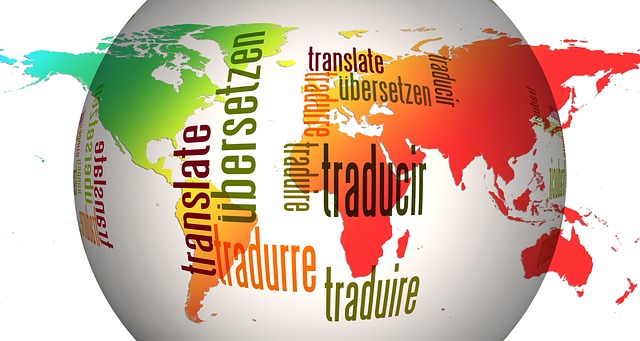Depending of course on your specific product, training your Mexican distributors will be imperative to your success if your want to export to and sell into Mexico. This is nothing new and goes along as plain common sense for doing business in Mexico or any other region of the world; the better you train your Mexican distributors and their sales reps, managers and service techs, the better they will be at selling and servicing your product. But once again, because of cultural differences, training your distributors in Mexico may go differently than in other regions of the globe. Or, because of safety, language and cultural differences, you may not want to send an employee to a certain region of Mexico to train a Mexican distributor on your equipment. That is where Mexico Business Associates can step in, as we offer training throughout Mexico for all of our foreign clients as one of our many services for sales/distributor support in Latin America’s second largest economy.
 Most companies with broad international distribution of their products already have specific international distributorship contracts that apply to all of their international distributors. Most of these contracts are somewhat similar and tend to be fair to both parties as they protect the manufacturer from certain problems in the foreign country while offering a system of support and service to the foreign distributor by way of future purchase credit for marketing and trade show expenses to push the product, yearly training and seminars, and several visits a year to the distributor’s office (or trade shows) by the part of the manufacturer to show support, train new staff, etc. The indemnity clauses of these contracts are often the most controversial and most open to negotiation. However no one on either side ever really agrees with everything in a said contract yet they must be signed in good faith on both sides in order to move forward. It is also worth noting that should one party violate their end of one of these bargains, international breech of contract litigation is outrageously expensive, and usually not worth pursuing. Therefore it is generally better to have agreement, trust and a similar vision on both sides before an international distribution in Mexico or elsewhere begins.
Most companies with broad international distribution of their products already have specific international distributorship contracts that apply to all of their international distributors. Most of these contracts are somewhat similar and tend to be fair to both parties as they protect the manufacturer from certain problems in the foreign country while offering a system of support and service to the foreign distributor by way of future purchase credit for marketing and trade show expenses to push the product, yearly training and seminars, and several visits a year to the distributor’s office (or trade shows) by the part of the manufacturer to show support, train new staff, etc. The indemnity clauses of these contracts are often the most controversial and most open to negotiation. However no one on either side ever really agrees with everything in a said contract yet they must be signed in good faith on both sides in order to move forward. It is also worth noting that should one party violate their end of one of these bargains, international breech of contract litigation is outrageously expensive, and usually not worth pursuing. Therefore it is generally better to have agreement, trust and a similar vision on both sides before an international distribution in Mexico or elsewhere begins.
However many clients who call us in need of Mexican distributors have no clear plans for international training and distributor support in regards to sales and technical service support. It’s not that they don’t necessarily want to offer such things to their Mexican distributor, it’s that they aren’t sure of the what and how. That is OK; we can assist you in coming up with a game plan that will make your product a winner in the Mexican market by locating and supporting solid Mexican distributors.
Whether you already have a game plan/contract for how you want to run your distribution support in Mexico, or are still in the nascent stages of this and need some consulting from us, there are some things you should know about your support and training plans for your Mexican distributors.
Bi-Lingual Training
In most cases, your Mexican distributors will not have a bi-lingual sales force. To be honest, in all of the Latin American countries in which I have trained for clients, very few sales reps spoke any English at all and all of the training was done in Spanish. There is a solid chance that your
Mexican distributor has a sales manager who speaks English, who you can train and then have him/her re-train the staff. In most cases and depending on the product line, WE DO NOT RECOMMEND this approach of training and re-training. Why not? Several reasons. First and foremost, after the training is finished, your sales manager is likely to call over the next several weeks with specific questions that each sales rep has during the re-training back in Mexico. This is only natural, as each individual will have his or her own questions during training. So why not get everyone in the same room and train them all at once in their native language (Yes, we reserve the right to ask rhetorical questions in this blog!)? This phenomenon is probably more acute when you are training in one language to the manager, then having him re-train in his native language with the staff. A lot of words, terms, and concepts of the product, its functionality and how to sell will likely get lost, changed or misconstrued when going from one language or culture to the next one. Believe us, IT HAPPENS. If you’re not bi-lingual or bi-cultural you might not be able to grasp this. A lot of ideas and concepts change when being translated from one language and culture to the next. Mexican culture and its linguistics often view the “translated” word differently than you do in English. One word, phrase or concept might be interpreted completely different depending on the context or situation. Continuing on the idea of a cultural context, Mexican sales reps will be more likely to push your product if they are trained  IN PERSON, IN MEXICO AND IN SPANISH. Remember from a past blog post that Mexico is a high-context culture in which strong, lasting relationships are valued over shorter, less close ones. Mexicans will immediately value the fact that someone came to their facilities in person to train them as opposed to simply doing a webinar or only training the manager. Even if your sales staff to be trained is bi-lingual, training in Spanish (once again, we can help you with this) will go over better with Mexican employees. Nelson Mandela once said, “If you talk to a man in a language he understands, that goes to his head. If you talk to him in his language, that goes to his heart.” I think that Latin American countries probably exemplify this cultural phenomenon better than any on earth. The bottom line is that the information that you plan to relay to Mexican sales people in a training session will most likely be better received in Spanish, even if their English is excellent. Furthermore, the fact that they were trained in their native language will likely make them all the more willing to push your product in the field.
IN PERSON, IN MEXICO AND IN SPANISH. Remember from a past blog post that Mexico is a high-context culture in which strong, lasting relationships are valued over shorter, less close ones. Mexicans will immediately value the fact that someone came to their facilities in person to train them as opposed to simply doing a webinar or only training the manager. Even if your sales staff to be trained is bi-lingual, training in Spanish (once again, we can help you with this) will go over better with Mexican employees. Nelson Mandela once said, “If you talk to a man in a language he understands, that goes to his head. If you talk to him in his language, that goes to his heart.” I think that Latin American countries probably exemplify this cultural phenomenon better than any on earth. The bottom line is that the information that you plan to relay to Mexican sales people in a training session will most likely be better received in Spanish, even if their English is excellent. Furthermore, the fact that they were trained in their native language will likely make them all the more willing to push your product in the field.
Plan for the training to last a bit longer and with questions you might not expect
As we have stated many times in this blog as well as in our book, Mexico is a high-context culture in that is has many contrasts with Anglo-Saxon cultures. Included in these contrasts is the concept of time as well as that of personal relationships. Time is not valued in Mexico as it is in a nation like the United States where you often hear the term “Time is money”. In Mexico the relationship that a client is building with his supplier is considered to be more valuable than efficiency with the clock. Therefore when in a training in Mexico, the manager, owner and employees will likely want to take at least some time getting to know you in a personal sense as opposed to getting down to business (in this case training in Mexico) immediately. You will need to allocate time for this.
Aside from Mexicans’ desire to develop a personal relationship with their guest, expect your training to last longer in Mexico than it would in an “efficient” country like Germany for some other cultural reasons. In these “efficient” countries such as Germany, Canada, the US and UK, we are taught from the time that we are young that we should find the quickest way to a goal or an accomplishment and follow that route and not to waste time deviating. This is a prime example of the Anglo-Saxon and Germanic styles of linear thinking, in which we organize our days and weeks in our professional and personal lives based upon how we feel we can accomplish the most in the shortest amount of time. Latin Americans do not posses this linear style of thinking in regards to work, friendship or family. Mexicans and Latin Americans as a whole apply a more circular and theoretical manner of reasoning to their lives. You will find in Mexico that Mexicans tend to discuss issues of business, politics and other issues for longer periods of time, and often without what we may see in the West as “getting to the point.” Please be prepared to have Mexican sales reps or managers ask questions about your product line, sales strategy etc. that you may not expect to hear when training distributors in your home country. Please just take into account that this is a cultural difference and the Latin American brand of theoretical thinking and analysis is what is driving these questions. One of the most enjoyable cultural exposures I had was years ago was when I trained 12 different national offices from a Miami based company in Central America and the Caribbean on a specific product line. This training was done by webinars and in country as I traveled to each nation. During the webinar trainings, we first did a webinar for all of the English speaking Caribbean countries, followed the next hour with all of the managers from Spanish Speaking Central America. The questions and feedback in each webinar was far different based on the thinking styles! I recall when I was in Jamaica visiting this company; I asked the Jamaican national manager if he noticed a difference between the thinking styles of the managers from former Spanish and British colonies. His response was “Oh yes, it’s quite obvious that my Latin American colleagues think in a more circular, theoretical way when discussing or analyzing a business issue, while I am worried about the big picture and the end result”. But don’t worry so much about the time, take into account the Mexican cultural differences and hope to cultivate a strong relationship with your Mexican distributor. The extra time may be worth it down the road.
Train and Explain VERY Clearly – Don’t ask just Once if there are Questions
 Since you will already be dealing with a different language and culture, training with great detail is advisable. Furthermore, because of the cultural differences mentioned in the last section, Mexican trainees are probably going to ask you more detailed questions about your product and will bring up hypothetical case studies for sales that you might not expect in the West. So training in Mexico with as much detail as possible will be to your benefit. Furthermore, because of a Mexican and Latin American cultural phenomena, Mexicans may tell you that they understand your explanations even if they don’t. They will often do this, as they do not want to offend you. Sound strange? It is in Western logic, but not in Latin America. You want to learn more about this, check out our book as it has a chapter on communication in Mexican business. In Mexican culture, it is often considered more respectful to tell someone what they want to hear at a given moment than to directly attack a problem with a simple, “I’m sorry but I really don’t understand. Could you please explain this part of the machine again?” This is hard for Latin Americans to come out and say because of the cultural emphasis on short-term appeasement and conflict aversion. If you’re interested in how Mexicans often tend to avoid conflict in daily situations I recommend Jorge Castañeda’s Mañana Forever? Mexico and the Mexicans. This is an excellent work and critique of Mexican culture from one of Mexico’s top intellectuals and diplomats. But this cultural difference doesn’t mean that you can’t have a successful training in Mexico. Just take note of this cultural difference prior to training. The best thing to do is to plan for a longer training, explain things thoroughly, encourage questions and stop every few minutes to ask if things are clear.
Since you will already be dealing with a different language and culture, training with great detail is advisable. Furthermore, because of the cultural differences mentioned in the last section, Mexican trainees are probably going to ask you more detailed questions about your product and will bring up hypothetical case studies for sales that you might not expect in the West. So training in Mexico with as much detail as possible will be to your benefit. Furthermore, because of a Mexican and Latin American cultural phenomena, Mexicans may tell you that they understand your explanations even if they don’t. They will often do this, as they do not want to offend you. Sound strange? It is in Western logic, but not in Latin America. You want to learn more about this, check out our book as it has a chapter on communication in Mexican business. In Mexican culture, it is often considered more respectful to tell someone what they want to hear at a given moment than to directly attack a problem with a simple, “I’m sorry but I really don’t understand. Could you please explain this part of the machine again?” This is hard for Latin Americans to come out and say because of the cultural emphasis on short-term appeasement and conflict aversion. If you’re interested in how Mexicans often tend to avoid conflict in daily situations I recommend Jorge Castañeda’s Mañana Forever? Mexico and the Mexicans. This is an excellent work and critique of Mexican culture from one of Mexico’s top intellectuals and diplomats. But this cultural difference doesn’t mean that you can’t have a successful training in Mexico. Just take note of this cultural difference prior to training. The best thing to do is to plan for a longer training, explain things thoroughly, encourage questions and stop every few minutes to ask if things are clear.
Training your Mexican Distributor CAN be a Successful, Positive Experience
The cultural differences that we have discussed don’t make Mexican or Anglo-Saxon culture better or worse than the other, simply different. The goal of this blog and one of the missions of our company is to develop greater cultural understanding for clients who choose to do business in Mexico. We are here to unite cultures and perpetuate commerce across borders, not to divide and criticize customs in Mexico or any other nation. Billions of dollars of international business is lost every year among nations all over the world because of lack of understanding of cultural differences. Should you choose to retain us to do your in country training in Mexico, or if you elect to embark upon the endeavor yourself (hopefully with a Spanish speaking employee), just keep in mind that things will be a bit different in Mexico than in your home country. Mexican business owners, managers and salespeople will greatly appreciate your training and support. Because of their high-context culture, Mexicans will likely see your desire to do business in Mexico and to invest in training and support as not only a business decision, but also as a personal gesture that could improve the welfare of their companies, families and the Mexican economy as a whole. Plan your training in Mexico to be somewhat longer than what you might expect at home. Take into account that certain topics and scenarios might come up in conversation with your Mexican trainees that might not come up in the States or Canada for example. And most importantly, be ready to build a lasting, long-term relationship with your Mexican distributor, as that is what they are hoping for south of the border!
